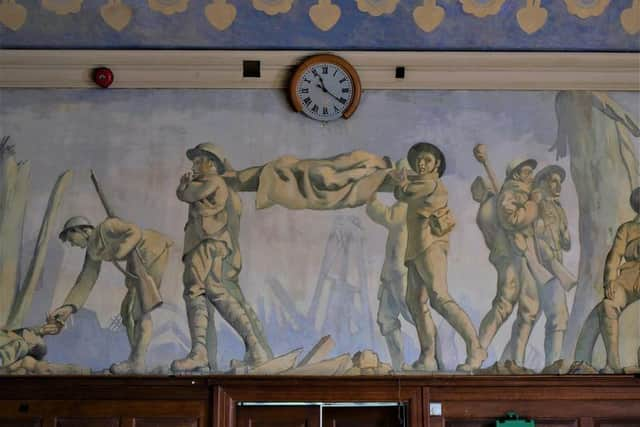West Sussex village hall and war memorial listed as Grade II building
and live on Freeview channel 276
Built in the aftermath of the First World War (1914-1918), the memorial is among tens of thousands that were erected across England in memory of the many people who lost their lives in the conflict. In place of graves, these memorials became focal points for local communities to mourn and honour their dead.
Arts and Heritage Minister Lord Parkinson of Whitley Bay said: "The long roll of honour inscribed on memorials across the land are a powerful and poignant reminder of the huge sacrifices made by so many families during the two World Wars.
Advertisement
Hide AdAdvertisement
Hide Ad“Each year, we recommit ourselves to ensuring that the names of those who laid down their lives in our defence will never be forgotten. I am glad that these memorials are being listed so that the names they proudly bear will live for evermore.”


Victory Hall in Balcombe was built as a working men’s institute in around 1901 and was later remodelled as a memorial village hall and social club in 1923. Inside the main hall there are large murals depicting scenes of War and Peace designed by the artist Neville Lynton.
Lynton joined the Royal Sussex Regiment at the start of the First World War, where he reached the rank of major and saw military action at the Somme and Amiens. He later became a war correspondent. During the conflict, Lynton sketched scenes of soldiers in the trenches.
The hall in Balcombe was founded by Lady Denman, a prominent national figure who helped found the National Federation of Women’s Institutes in 1916, and who worked closely with the architect John Bond in the building’s design. She was also the head of the women’s branch of the Ministry of Agriculture and served as Director of the Women's Land Army which she helped to re-establish during the Second World War.
Advertisement
Hide AdAdvertisement
Hide AdDirectly opposite the entrance door is a Roll of Honour with a dedication reading ‘THIS HALL WAS BUILT IN MEMORY OF THE BALCOMBE MEN WHO SERVED IN THE GREAT WAR 1914-1918’. Below are three panels with the names of those who served in the First World War.